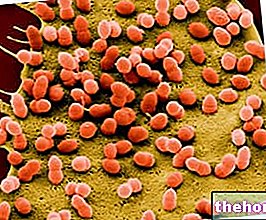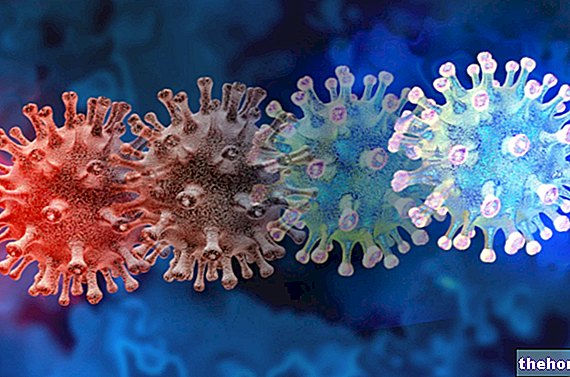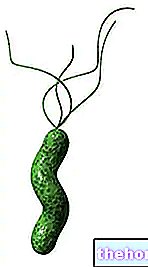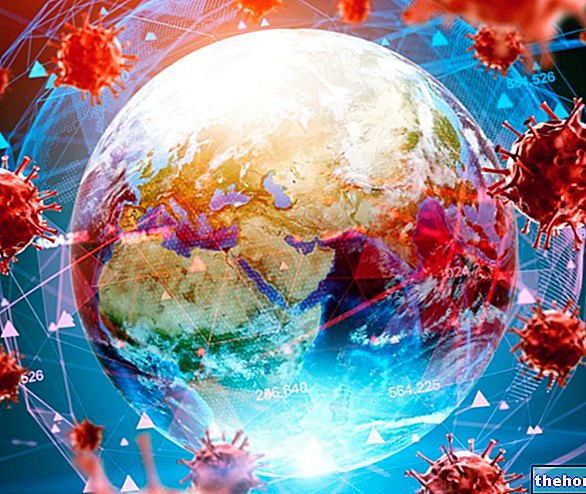Contraindications and unwanted reactions to vaccination
The administration of the vaccine is contraindicated in subjects with hypersensitivity to egg proteins or other components of the vaccine. Influenza vaccination must be postponed for one to two weeks in case of ongoing febrile events or other acute illnesses of any kind. People taking immunosuppressive drugs (which depress the immune system), may not respond optimally to the flu shot; therefore it would be advisable, whenever possible, to postpone the vaccination for at least one month after the interruption of treatment. Treatment with cortisone for local use (ointments or gels) or for general use (tablets or pricks) at low dosage does not constitute a reason to postpone flu vaccination.
HIV seropositivity is not a contraindication to the administration of influenza vaccination although, HIV positive subjects with low CD4 + T lymphocyte values, the administration of the vaccine may not be protective and a second dose of vaccine in these subjects does not improve the response in such a way. substantial. Substantial increases in virus replication, CD4 + T cell reduction, and progression to AIDS have not been demonstrated in vaccinated HIV-positive individuals.
In subjects with autoimmune diseases, the influenza vaccine should be administered only after a "careful evaluation of the risk-benefit ratio.
Manifestations of immediate hypersensitivity, or neurological reactions following a vaccine administration are an absolute contraindication to subsequent doses of the same. Influenza vaccination is not contraindicated in breastfeeding women.
The most frequently reported side effects following administration of the influenza vaccine are pain, erythema of the skin, swelling, pain, redness and warmth at the injection site.
Other frequently reported adverse reactions, especially in people never vaccinated before, consist of general malaise, fever, myalgia (muscle pain), with onset 6 to 12 hours after vaccination, and lasting 1 or 2 days.
Allergic reactions such as hives and asthma have also occurred, especially in people with hypersensitivity to egg proteins or other components of the vaccine.
Other adverse events such as transient decrease in the number of platelets, neuralgia (pain related to nerve root involvement) and neurological disorders have been reported after influenza vaccination (although the correlation between the administration of influenza vaccine and these events has not been demonstrated ).
Adverse reactions to vaccination must always be reported by the general practitioner to the Ministry of Health by filling in a specially prepared form.
When the patient goes to the Hygiene office of his USL to get the vaccine, he will be made to sign a sheet. In it there are three sections: the first contains some information about the meaning of "pandemic" and why it is useful get vaccinated against it for certain risk categories; in the second, what Focetria® is; in the third, the subject signs to give consent to be vaccinated, to have been informed and understood the information about the vaccine, its potential risks and benefits, to have consented to remain in the clinic 30 minutes after vaccination and possibly to inform the your primary care physician on adverse reactions noted later.
The reluctance of many people to be vaccinated derives from some information regarding the adjuvant used in the preparation, namely squalene. It all started from a research published in February 2000 in the journal Experimental Molecular Pathology in which Gulf War veterans were said to have contracted a syndrome bearing this name (Gulf War Syndrome- GWS) after receiving anthrax vaccines that contained squalene and it was seen that 95% of those who developed this syndrome had developed antibodies against squalene. L "MF59 (the squalene adjuvant present in the Focetria® vaccine and also in Pandemrix®, but not in Celvapan®), was an unapproved ingredient in experimental anthrax vaccines, and has since been linked to the potential onset (after years) of certain autoimmune diseases such as rheumatoid arthritis, fibromyalgia, systemic lupus erythematosus, multiple sclerosis, Raynaud's phenomenon, Sjogren's syndrome, mouth ulcers, thyroid problems, etc.
All this has not been sufficiently demonstrated, and the correlation between squalene and the onset of these diseases has never been ascertained, given that the studies carried out on patients vaccinated for swine flu are still too short in duration to be able to give any type of certainty.
At present there is no medical science that can guarantee the safety of vaccines against swine flu (H1N1). Nevertheless, since it is a flu that can cause important complications in those at risk, especially those with basic respiratory and heart problems. , it is recommended to get vaccinated, since the side effects of the vaccine would still be less than those deriving from one of the complications of the flu.
There has also been much discussion on the economic question linked to this "flu, so much so that it is called" The "affair of" influenza A - Pandemic of gain ". Many have wondered about the economic interests that move behind the swine flu, and in particular so they wondered why in the world every year the common flu kills half a million people, measles and pneumonia 10 million, malaria and diarrhea two million, but the news does not say anything about this. And instead, years ago, with the H5N1 (avian) flu, and today with the H1N1 (swine), the world news was flooded with news and warning signs. The avian flu caused the deaths of a few hundred people all over the world, but caused such a stir because, it is said, the pharmaceutical company that produces Tamiflu ® (an antiviral) has sold millions of doses to Asian countries, and also to the British government, which bought 14 million doses for prevention in its population. With the chicken flu yesterday and pigs today, the big pharmaceutical companies that market antivirals and vaccines, have obtained and are still making a huge profit. It is therefore said that the "panic effect" created in the population was one marketing tool to sell vaccines and antivirals, and therefore it is a real bargain at the expense of citizens.
See also: Nutrition, Medicinal Herbs and Flu
Other articles on "Swine Flu A / H1N1 Vaccination"
- Treatment and cure of swine flu A / H1N1
- Swine flu or A / H1N1 flu
- Swine flu: viral transmission and mutation
- Swine flu symptoms A / H1N1
- Swine Flu A / H1N1 complications




























